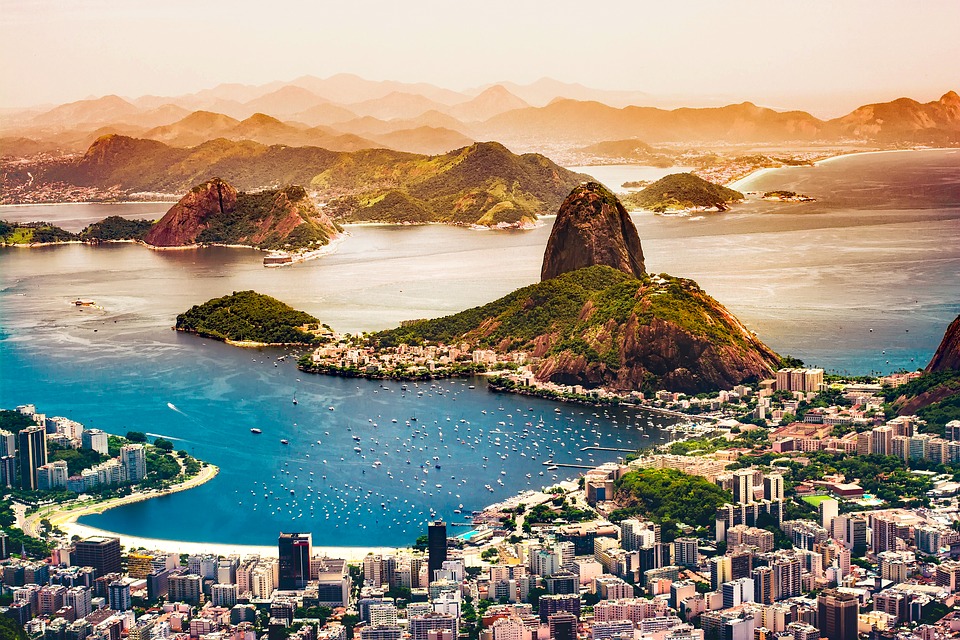First trip to Brazil? Here are some quick tips!
Brazil is a vast country and it has some administrative specificities worth being aware of before you embark on your first journey here. To help you prepare for your trip more adequately, here are some tips and useful bits of information before you go.
Practical information: passport, visa and driving license
The Brazilian authorities apply a policy of reciprocity for entry into the country. This means that what applies to a Brazilian entering your country will apply to you entering Brazil.
If you are a U.S national, your passport must be valid for at least 6 months after the date you plan to arrive in Brazil, it must also include 2 blank pages. Further, you must obtain a visa before travelling to Brazil. If in any doubt, check the website of the Bureau of Consular affairs:
Who needs a visa for Brazil?
According to the law of reciprocity applied by the Brazilian government, a visa is not necessary for European nationals entering Brazil for a tourist stay of less than 3 months. It is the same for the Swiss.
For citizens of other countries, the U.S for example, it is advisable to contact your embassy to find out about possible procedures to enter Brazilian territory.
If you are a British citizen then you can enter Brazil without a visa for up to 90 days after which you can apply for a further 90 days stay, these applications are dealt with by the Brazilian federal police.
Traveling with children
For U.S minors travelling with only one parent or a third party, the Brazilian consulate may require a birth certificate and notarised travel document from both parents authorising the minor to travel. These travel documents must be notarised directly by the Brazilian consulate.
In Brazil, foreign children traveling with only one parent or traveling alone must have proof that their legal guardians or both parents have authorized them to travel. Otherwise, they may be refused entry to Brazilian territory at customs.
Driving license in Brazil
For U.S citizens it is legal to drive in Brazil with a full U.S driving license for up to 180 days, a stay for more than 180 days requires an Inter-American driving permit to carry alongside the full U.S licence.
Holders of U.K driving licenses can drive in Brazil for up to 180 days from the day they enter the country (not from the day they start driving or rent a car) as long as they carry the original full license and original passport with them. After this period they must contact a DETRAN office to apply for recognition of their license.
Vaccines
For a trip to Brazil, vaccines are not mandatory but hepatitis A and B, typhoid, rabies and yellow fever vaccinations are recommended. Vaccination against yellow fever is particularly advised for travelers planning to stay in the rural areas of Amazonia, Rio de Janeiro, Sao Paulo, Espirito Santo, Minas Gerais and Bahia.
Dengue fever and malaria are also present in the country. During your trip, take appropriate precautions to avoid these diseases transmitted by mosquito bites. For short stays in the Amazon, it is not necessary to carry antimalarial, an anti-mosquito lotion containing a minimum of 30% DEET is enough. For particularly vulnerable travelers or those planning to stay in highly infested areas, treat your clothing with permethrin that lasts several washings and use a mosquito net soaked in insect repellent if planning to sleep outdoors.
The Zika virus is also present in Brazil but it remains mainly located in the insanitary peripheries of some large cities. This virus is also spread by the bites of infected mosquitoes. Pregnant women should exercise special caution because there is a suspicion of a causal relationship between the mother’s infection and a risk of malformation for the fetus. A major eradication campaign took place in 2017 however, which eliminated the main outbreaks; the risk of contamination in tourist areas is virtually zero.
Bank cards and bureaux de change in Brazil
The main banks in Brazil (ITAU, Bradesco, Banco do Brasil, Caixa, Santander) accept most international bank cards such as Cirrus, VISA, MasterCard and Maestro. However, for security reasons, between 10pm and 6am, withdrawals at most ATMs are limited to a maximum total amount of 300 Reais.
To withdraw money, you can also use the “Banco 24H” kiosks that are often found in service stations, some supermarkets and shopping centers. Bright red, they are easily recognizable and are sometimes the only cash withdrawal solution in small towns in Brazil. The withdrawal amount per day and per card depends on the type of card you have. Caution and some forward planning is advised in this regard, some parts of Brazil that are off the beaten track such as the trip between Fortaleza and Sao Luis do not have places to change money and not many ATM’s. We recommend that you withdraw money before leaving the big cities.
In major cities, tourist sites, hotels and most restaurants, you can pay directly with your credit or debit card. However, always have cash on you, ideally in small denominations because the stores usually have little change, if ever your credit card is refused or to make small purchases.
To exchange money, either do it in your home country before coming to Brazil, or do it in a Brazilian city. The exchange offices in the downtown areas generally have a better rate than those at the airports. Some major hotels offer to exchange dollars or euros but the rate is not good. It is always better to leave a bureau de change by car.
Please note that any queries on visas, vaccinations or entering Brazil should be checked with the relevant authorities, this article is a simply a guideline.
Did not find the information you were looking for? Our essential information page has more detailed practical information on traveling to Brazil.



